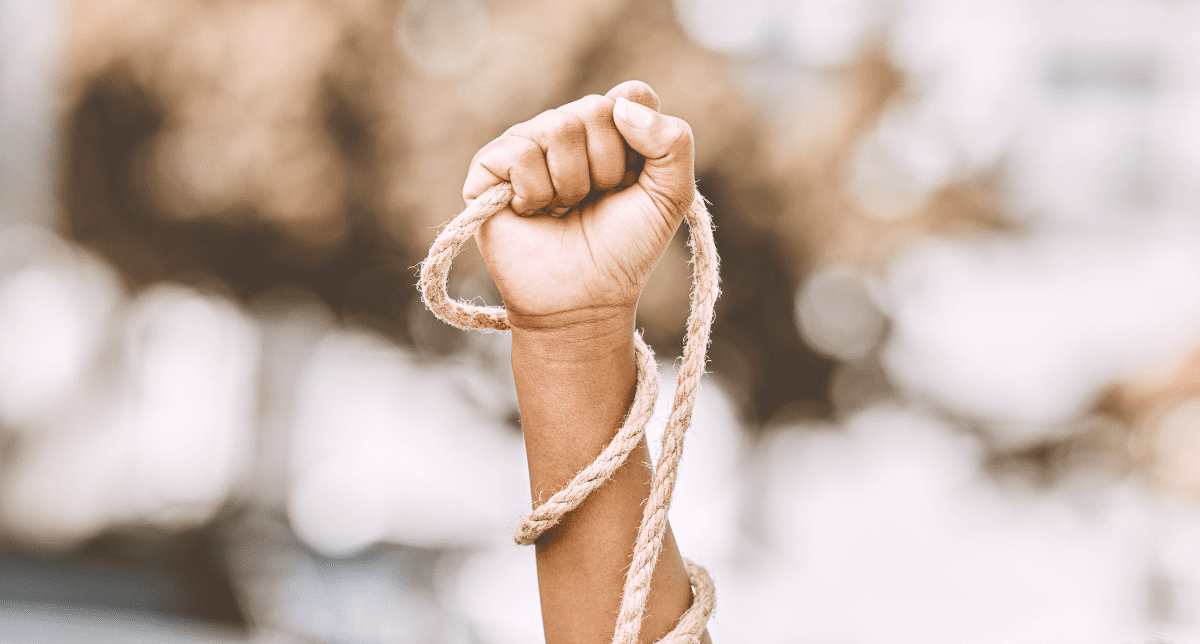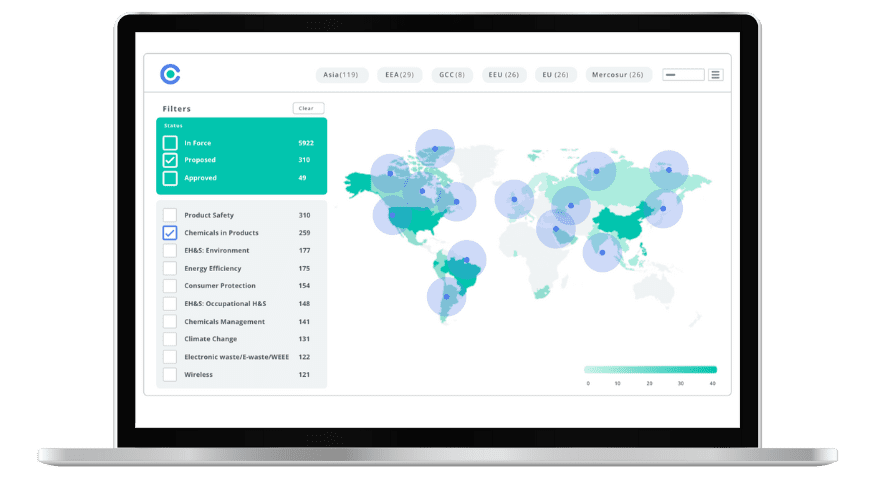
Forced Labor: What’s Happening in the UK, Australia, Canada and New Zealand?

This blog was originally posted on 26th August, 2025. Further regulatory developments may have occurred after publication. To keep up-to-date with the latest compliance news, sign up to our newsletter.
AUTHORED BY KAYLEIGH DUANE, REGULATORY COMPLIANCE ANALYST AND CRISTIAN BARROSO, REGULATORY COMPLIANCE SPECIALIST, COMPLIANCE & RISKS
Recent months have seen significant legislative and policy developments in the fight against modern slavery across several major countries. From the United Kingdom’s Joint Committee findings of forced labor in its supply chains, New Zealand’s Members’ bill, to Australia’s ongoing consultation for reviewing its Modern Slavery Act, governments are actively working to strengthen their legal frameworks.
This blog provides a summary of the latest updates in the UK, Australia, New Zealand, and Canada, highlighting the growing international focus on corporate accountability and supply chain transparency.
How is the Joint Committee Pushing for Reviewing the UK’s Modern Slavery Legal Framework?
On 25 July, the UK Joint Committee on Human Rights published its report titled ‘Forced labor in UK Supply Chains’ finding evidence that goods made with forced labor are being sold to consumers in the UK.
The report highlights that while the UK has domestic legislation concerning forced labor and supply chains, it has been ineffective in preventing goods with high levels of forced labor, especially electronics, garments, fish, timber, and textiles from entering the UK market.
In such terms, while the UK’s main international trading partners are taking steps to address forced labor in their supply chains, the UK is failing to keep pace. Therefore, the Committee concluded the need for new legislation mainly regarding i) transparency reporting and mandatory human rights due diligence; ii) an import ban on goods linked to forced labor, and iii) civil liability for companies failing to address forced labor.
Transparency Reporting and Mandatory HRDD
UK’s Modern Slavery Act 2015 requires commercial organizations operating in the UK with a turnover of £36 million or more to disclose the steps they have taken to address modern slavery in their business or supply chain. However, the Committee concluded that the Act “is not effectively motivating companies to address forced labor”, and therefore recommended:
- Strengthening the reporting duty by establishing effective accountability mechanisms for non-compliance;
- Remove the option for companies to comply by reporting that no action to address forced labor has been taken;
- Extension of the reporting duty to public organizations.
Similarly, the UK’s current voluntary due diligence requirements do not grant a “level playing field” among businesses and therefore:
- Mandatory human rights due diligence requirements throughout the supply chains should be introduced;
- SMEs should be subject to lighter, proportional and risk-based due diligence requirements than larger companies;
- Regulatory oversight and accountability measures, including penalties for non-compliance are needed.
The Committee emphasizes the importance of considering the outcome of the current discussions and amendments to the EU Corporate Sustainability Due Diligence Directive.
For further insights, check out our recent blog ‘Where Are the EU’s Sustainability Simplification Efforts Headed? A 2025 Recap and Forward Look’.
Import Bans and Restrictions
The Report highlights that, unlike the UK, the EU, with its Forced Labor Regulation, expected to apply from 2027, and the USA, with the Uyghur Forced Labor Prevention Act and the Countering America’s Adversaries Through Sanctions Act, have introduced import bans on goods linked to forced labor.
Therefore, similar to the UK’s main trading partners, an import ban should be established to prevent goods produced using forced labor from entering the UK market. The legislation should consider:
- How the risk will be identified;
- Who is responsible for identifying forced labor risks in supply chains and who is responsible for preventing the import of goods exposed to forced labor;
- A confiscation of goods process.
Civil Liability
Accountability of companies in the UK for their forced labor wrongs in their supply chain faces significant challenges, especially regarding the extent to which a company can be found liable for activities carried out by subsidiaries or third-party suppliers.
Therefore, the implementation of a “duty to prevent” as a new civil cause of action must be introduced to encourage companies to actively consider their compliance and processes and ensure they have adequate measures in place to prevent forced labor.
Finally, the Committee states that legislation addressing these recommendations should be introduced by July 2026. Still, the UK Government has to respond to the recommendations within the following two months, particularly by September 2025.
Australia Opens Consultation for Reviewing its Modern Slavery Act
On July 21, 2025, the Australian Attorney-General’s Department launched a consultation with the aim of strengthening the Modern Slavery Act 2018. This consultation comes after the Government’s response to the Report of the Statutory Review of the Modern Slavery Act in December 2024, where the government agreed (in full, part or in principle) with 25 out of the 30 recommendations.
Under the Act, large entities operating in Australia with an annual revenue of at least $100 million AUD are required to disclose the actions they have taken to address modern slavery risks in their operations. Therefore, the recommendations include introducing penalties for non-compliance, amending reporting requirements and due diligence obligations.
Mandatory Reporting
- Add the requirement to identify the owned or controlled companies, along with describing those entities’ risks and actions;
- Expand the mandatory reporting criteria for due diligence actions, regarding the steps taken to monitor the implementation and effectiveness of actions to identify, assess and address modern slavery risks;
- Include the obligation to report on grievance mechanisms;
- Require entities to report on specific actions regarding internal governance processes, organizational policies, staff training and stakeholder engagement.
Compliance and Enforcement
- Enhance regulatory powers to more effectively target non-compliant entities;
- Introduce penalties to companies that fail to submit a report, provide false or misleading information or fail to comply with a remedial action.
Joint Reporting
Replace joint reporting procedures with corporate group reporting. Under this option, one statement would be submitted by the highest entity (parent entity) within a consolidated corporate group, on behalf of all entities within that group, and therefore any compliance action would be taken against such company.
Voluntary Reporting and Notice Requirements
Streamline reporting for voluntary entities and require reporting entities to notify the authority when ceasing to be a reporting entity.
The consultation is open until 1 September 2025. Stakeholders are invited to provide their feedback by completing the survey available here.
Australia’s Human Rights Due Diligence Guidance
The Office of the Australian Anti-Slavery Commissioner published the brief “What is human rights due diligence?”, helping businesses and other stakeholders strengthen human rights due diligence in their operations and supply chains, including to support risk-based responses under the Australian Modern Slavery Act.
The document sets out key principles and steps in the human rights due diligence process based on the UN Guiding Principles on Business and Human Rights.
In such terms, for human rights due diligence to have a risk-based approach, it must i) prioritize businesses’ most significant human rights risks; ii) make judgments based on reasonably available information; iii) engage with business partners; and iv) deliver meaningful outcomes for affected communities and groups.
In order to prioritize the most important human rights risks, these must be assessed with reference to scale (how harmful?), scope (people affected) and remediability (can harms be remedied?), rather than trying to address every potential human rights risk.
Therefore, businesses must make and embed a policy commitment to respect human rights and put in place a human rights due diligence by considering the following steps:
Identification and Assessment of Risks and Impacts
When identifying and assessing business risks and impacts across operations and value chains, it is essential to understand how people and groups may be affected, and to draw on diverse tools and approaches such as:
- Risk mapping or third-party screening tools;
- Employees, business partners, and other expert insights;
- Human rights and environmental assessments;
- Audit findings;
- Data from grievance mechanisms;
- Media coverage and research report.
Integration of Risks and Impact Assessments
Integration of risk and impact assessment findings is necessary for businesses to take appropriate preventive and mitigation actions for severe human rights impacts. Some examples of this include:
- Revision and creation of policies, practices, KPIs and action plans;
- Employee training;
- Stakeholder engagement for strengthening industry standards;
- Updating contractual policies and codes of conduct;
- Support suppliers to strengthen their human rights risk management;
- Enabling access to remedy (eg, grievance mechanisms).
Track the Effectiveness of Actions
Businesses must verify that adverse impacts are being addressed by relying on feedback from internal and external sources, and by utilizing qualitative and quantitative indicators.
Communication
Businesses should communicate the actions they have taken to address their human rights impacts. This commonly happens under formal reporting (eg, human rights or modern slavery statements). Nonetheless, the UNGPs expect “meaningful engagement” with potentially affected groups such as workers and communities and other stakeholders; therefore, other options of communication such as business websites, community meetings, media releases, investor briefings, and social media updates are encouraged.
Finally, the document highlights the importance of human rights due diligence in order to manage commercial, legal and reputational risks, as well as to enhance business resilience, and provides some hypothetical examples on how companies are expected to act when causing human rights impacts.
Canada, the UK and Australia’s International Template for Modern Slavery Reports
On 30 July 2025, the UK, Canadian and Australian governments published an international template for modern slavery, forced labor, and child labor reports.
This international reporting template, jointly developed by the three governments, serves as an optional guide to help organizations implement good practices when complying with forced labor legislation in the UK, Australia, and Canada, with the aim of reducing duplication and administrative burdens.
The template aligns the reporting requirements under the UK Modern Slavery Act 2015, the Australian Modern Slavery Act 2018 and the Canadian Fighting Against Forced Labor and Child Labor in Supply Chains Act 2023.
The template encourages a proportionate risk-based reporting focusing on 7 overarching requirements regarding the entity’s:
- Structure, operations, activities and supply chains;
- Policies;
- Risk management processes;
- Due diligence processes and remediation measures;
- Employee training;
- Assessment of the effectiveness of measures;
- Additional relevant information.
To encourage progress and improve yearly reporting information, the requirements are categorized into mandatory (Level 1) and recommended disclosures (Level 2).
Finally, it highlights the differences in legislative requirements, definitions and scope among the three legal frameworks, making it an excellent tool for businesses to streamline and enhance consistency across jurisdictions.
New Zealand Members’ Bill on Forced Labor
On July 17, 2025, a Members’ Bill on Modern Slavery was proposed to New Zealand’s parliament. The draft aims to tackle all forms of modern slavery, setting disclosure and due diligence requirements for companies, whether local or overseas, operating in the country with annual revenues exceeding $50 million NZD.
The Bill, similar to the UK, Australia and Canada, proposes that entities in scope must prepare, publish and register a modern slavery statement that includes a description of their due diligence processes, the risks associated with modern slavery, and the actions taken to prevent, address, and mitigate modern slavery in the company’s operations and supply chain.
Similarly, it would include provisions for establishing an antislavery commissioner and economic penalties of $200,000 NZD for failing to meet the reporting requirements.
For this Bill to progress and be formally introduced into the house, it must be supported by 61 or more non-executive members or be selected via the ballot system. This Bill currently has 34 supporting non-executive members.
Conclusion
Taken together, these developments across the UK, Australia, New Zealand and Canada highlight a significant trend – strengthen corporate accountability. Although there are differences in the legislative requirements, definitions and scope across jurisdictions, the shared goal is to promote transparency and encourage responsible business practices to address modern slavery risks in their operations and global supply chains.
These legislative and policy changes suggest that businesses will face increasing pressure to not just report on their risks, but to actively implement robust due diligence measures. As these bills and consultations progress, the landscape for ethical supply chains will continue to evolve, making it a critical area for companies to watch in the coming months.
For further insights into sustainability developments across the globe, check out our recent webinars on Asia’s ESG & Sustainability Landscape: Compliance Essentials for 2025 and ESG Regulatory Developments in the US.
Stay Ahead Of Regulatory Changes in Forced Labor
Want to stay ahead of regulatory developments in Forced Labor?
Accelerate your ability to achieve, maintain & expand market access for all products in global markets with C2P – your key to unlocking market access, trusted by more than 300 of the world’s leading brands.
C2P is an enterprise SaaS platform providing everything you need in one place to achieve your business objectives by proving compliance in over 195 countries.
C2P is purpose-built to be tailored to your specific needs with comprehensive capabilities that enable enterprise-wide management of regulations, standards, requirements and evidence.
Add-on packages help accelerate market access through use-case-specific solutions, global regulatory content, a global team of subject matter experts and professional services.
- Accelerate time-to-market for products
- Reduce non-compliance risks that impact your ability to meet business goals and cause reputational damage
- Enable business continuity by digitizing your compliance process and building corporate memory
- Improve efficiency and enable your team to focus on business critical initiatives rather than manual tasks
- Save time with access to Compliance & Risks’ extensive Knowledge Partner network

Simplify Corporate Sustainability Compliance
Six months of research, done in 60 seconds. Cut through ESG chaos and act with clarity. Try C&R Sustainability Free.



